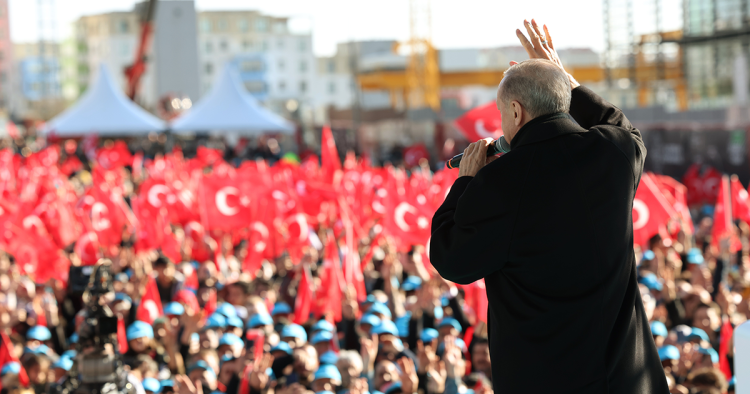This article was written by Gönül Tol, the founding director of the Middle East Institute’s Turkey program, and Ali Yaycıoğlu, a history professor at Stanford University, for Foreign Policy.
Can elections remove an autocrat like Turkish President Recep Tayyip Erdogan from power? If you pose this question to Turkey watchers in Western capitals to get their take on the country’s upcoming election, you will get a resounding “no” from a significant number of them. Some will say Erdogan is still very popular—or at least adept at mobilizing his followers. Others will argue that elections do not matter in the entrenched autocracy he has built; one way or another, he will find a way to stay in power. Take the Western conventional wisdom about this Sunday’s election with a grain of salt, and here’s why.
Erdogan is indeed a popular leader. He commands somewhere between 40 percent and 45 percent support, no small feat after 20 years in power. But he is not nearly as popular as he once was. In the 2018 presidential election, Erdogan captured 52 percent of the vote, or some 26 million votes. Several factors worked in his favor then. The elections were held just two years after the failed 2016 coup and its “rally-around-the-leader” effect. Erdogan was riding high on a wave of nationalism after the Turkish military intervened in the Syrian civil war to fight the Syrian Kurds. The country was not suffering from a major economic crisis like today. The opposition was fractured: The popular Peoples’ Democratic Party (HDP) co-chair Selahattin Demirtas, Iyi Party leader Meral Aksener, Republican People’s Party (CHP) candidate Muharrem Ince, and Felicity Party leader Temel Karamollaoglu were each on the ballot running separately against Erdogan. The nationalist base was more unified, with the majority still backing Erdogan; the nationalist breakaway Iyi Party had been established too recently to draw away much of the vote.
Continue reading on Foreign Policy
Photo by Murat Kula/Anadolu Agency via Getty Images.
The Middle East Institute (MEI) is an independent, non-partisan, non-for-profit, educational organization. It does not engage in advocacy and its scholars’ opinions are their own. MEI welcomes financial donations, but retains sole editorial control over its work and its publications reflect only the authors’ views. For a listing of MEI donors, please click here.













